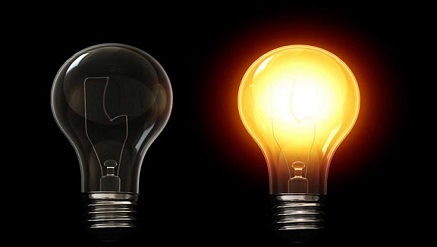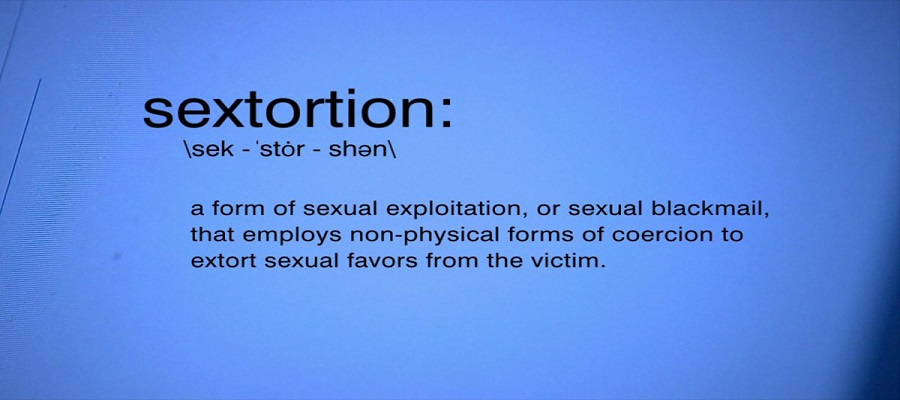General News
30% Rating: Power Improvement in Nigeria Still Elusive- NOIPolls

Power poll results released by NOIPolls Limited for the second quarter of 2015 have revealed that Nigerians have rarely seen improvement in power supply even in the face of power reformation programmes; as only an average of 36.4 percent of Nigerian households attested to seeing improvement in power supply over a 30 month period.
This finding is in no doubt influenced by the challenges faced from the generation, transmission and distribution end of the power sector.
More findings revealed that the power sector has been characterized by an erratic supply of power as there has been no clear consistency in the state of power over this period, with months of slight improvements as well as most often, months with no visible improvement.
For instance there has been a consistent decline in the proportion of Nigerians who saw improvement from January 2015 (32percent) to May 2015 (17 percent); however an upward movement was recorded in June 2015, as 44 percent of Nigerians attested to seeing improvement in power supply; thus representing a significant increase of 27-points from May to June 2015.
Moreover, nationwide quarterly averages revealed that Q2 2015 recorded the worst power rating, while Q3 of 2014 recorded the best power rating so far at 45 percent.
In a general view of power tracking by geo-political zones over a 30 month period, the larger proportion of Nigerian households across all geopolitical zones have generally seen no improvement in power supply.
In line with this, the South-West zone recorded the lowest overall average power improvement rating at 32 percent over the period in view, thus indicating that this zone is the worst hit zone in terms of poor power supply.
On the other hand, the South-East zone seemed to have enjoyed relatively the best power supply with an overall average of 41 percent.
And, while NOIPolls continues to provide valuable data on the power sector from the consumer end through its ‘Monthly Power Tracking’, it becomes more critical for all other stakeholders to also conduct consistent step by step evaluations of strategies, transformation and intervention programmes developed to revive the power sector; especially from the generation and transmission end in order to identify gaps, while developing long term strategies that will transform the entire power sector.
Giving a background to the power situation in the country, NOIPolls Limited said that going as far back as 1999, Nigeria had 79 generation units out of which only 19 were operational and the average daily generation and distribution was down to 1,750 MW.
No new electric power infrastructure was constructed between 1989 – 1999, during that ten year period there was a lack of development which further aided in pushing the sector into the abyss of rot and decay.
The Federal Government in 2005 embarked on a sector reform through privatization to ensure adequate and equitable generation and distribution of electricity while also setting up a commission to serve as the regulatory body overseeing the sector.
This was done to ensure fair pricing and sufficient generation, transmission and distribution of electricity across board.
Sadly despite the successful unbundling of NEPA and the sale of its assets to private investors as generating, transmissions and distribution companies, the situation of power keeps retrogressing as Nigerians are still experiencing major power black outs with an average maximum of 7.1 hours per day
With the aim of monitoring the progress made so far in the power sector reforms in Nigeria, NOIPolls introduced the Power Polls in 2013 to explore the perception of Nigerians towards the power sector reforms.
The polls were conducted monthly to explore the amount of power supply received daily and expenditure on power supply, as well as the state of power supply to households and its effect to consumers especially in the use of alternative sources of power and it financial implications.
In conducting the power polls, respondents were asked 5 specific questions every month; one of these questions would be discussed in this release.
The result presented is a 30-Month tracking of power supply to households from the consumer end. For full report, please contact NOIPolls on enquiries@noi-polls.com
Key Findings
Month on Month Consumers’ Description of the State of Power Supply to Their Households
For every month respondents were asked to rate the current state of power supply to their households.
This question is critical in assessing the state of the Nigerian power sector from the consumer end, even in the face of reformation in the Nigerian power sector.
Findings revealed that overall Nigerians have rarely seen improvement in power supply as only an average of 36.4 percent attested to seeing improvement in power supply over a 30-month period.
This figure represents only about one third of the entire adult population who have seen improvement.
A closer view at the month on month record of the state of power within the period in view, revealed an erratic situation in the supply of power as there has been no clear consistency in the state of power to households.
For instance just when more than half celebrated seeing improvements in August (51 percent) and September (52 percent) 2014 (which also represented the best power rating since January 2013), the reverse was the case for the proceeding month (October 2014; 36 percent) with a huge dip of 16-points in the proportion of households that saw improvement in October 2014.
Similarly, there has been a consistent decline in the proportion of Nigerians who saw improvement from January to May 2015; although in June 2015, there was a major jump as 44 percent of Nigerians attested to seeing improvement in power supply to their households over the past one month; thus representing a significant increase of 27-points from May 2015.
The monthly tracking of state of power supply to households, also presents the proportion of Nigerians who have seen no improvement in power supply over a 30 month period and findings revealed that an average of 63.6 percent of Nigerians have seen no improvement in power supply.
Moreover the months of April (80 percent) and May (83 percent) 2015 recorded the worst power rating so far since NOIPolls commenced tracking power improvements.
Overall Power Tracking By Geo-Political Zones Over 30 Months
Power tracking by geo-political zones over a 30 month period also revealed that the larger proportion of Nigerian households across all geopolitical zones have generally seen no improvement in power supply.
Although, the South-West zone recorded the lowest overall average power rating at 32 percent over the period in view, thus indicating that this zone is the worst hit zone in terms of poor power supply, the South-East zone seemed to have enjoyed relatively the best power supply with an overall average of 41 percent, among other findings.
General News
FBI Sends Team to Nigeria to Track Down ‘Sextortion’ Scammers

Sextortion scams have become so widespread that the Federal Bureau of Investigation (FBI) is sending agents to Nigeria to help track down the perpetrators.

The agency’s “Operation Artemis” has led to the arrest of 22 Nigerians, half of whom are “directly linked” to sextortion incidents in which victims died by suicide.
Sextortion scams often begin on social media, where perpetrators pose as attractive young women to lure victims—typically unsuspecting teenage boys—into sending nude photos or explicit videos.
Once the images are obtained, the scammers turn to blackmail, threatening to leak the content unless the victim pays up.
In some cases, the sextortion results in teenage victims taking their own lives over fear of the nudes leaking.
In Thursday’s announcement, the FBI noted it’s been “observing a significant increase over the last three years in financially motivated sextortion schemes targeting young males ages 14-17, resulting in more than 20 minor victims dying by suicide.”
The agency is also facing a 30% year-over-year increase in sextortion-related tips.
“According to the FBI’s Internet Crime Complaint Center or IC3, there were over 54,000 [extortion-related] victims in 2024, up from 34,000 in 2023,” it said.
“Over the last two years there have been nearly $65 million dollars in financial losses due to this crime.”
In response, the FBI says 55 agency field offices came together to identify “nearly 3,000 victims of financially motivated sextortion,” which led investigators to track down the culprits in Nigeria.
The US has since extradited at least three suspects from Nigeria.
“These subjects will now be held accountable in the American justice system, with more subjects still awaiting extraditions in Nigeria,” the FBI added.
General News
FBNQuest Trustees Hosts Estate Planning Summit in Port Harcourt

FBNQuest Trustees Limited, a subsidiary of First HoldCo Plc, provider of trust solutions to individuals, corporate and government institutions, recently hosted its inaugural Estate Planning Summit in Port Harcourt.

The maiden event, themed: Wealth Preservation and Transfer without Hassle, was organised to strategically enlighten and empower the participants with the necessary knowledge required to seamlessly manage and successfully transfer their assets and legacies to their beneficiaries.
Speaking at the event, the Acting Managing Director, FBNQuest Trustees, Babajide Fetuga, stressed the critical importance of seeking professional guidance on estate planning, preservation and transfer of wealth to successive generations and other beneficiaries. He stated that a professionally drafted estate plan gives no room for any form of ambiguity; hence, it provides clear directives on what to do at any time.
‘’The potential consequences of not having an estate plan include perennial family disputes and protracted court cases, which may result in a huge financial burden and foster long-lasting resentments among loved ones if proactive steps are not undertaken to protect individuals, families and loved ones from avoidable stress.
‘’Understanding the values of wealth preservation is crucial. It is vital to recognize the importance of having a strategic estate planning blueprint, and we are determined to educate you with knowledge that not only informs but inspires you to take the necessary actions as you move forward,” he added.
FBNQuest Trustees is dedicated to promoting effective estate planning solutions. The company has a track record of successfully hosting estate planning summits in Abuja, Lagos, Minna and Ibadan and continues to emphasize the importance of thoughtful planning through initiatives like the Legacy Series Campaign and the Legacy Room podcast.
The summit featured industry experts who delivered valuable insights on the significance of wealth preservation and transfer, addressing the residents of Port Harcourt and its environs. The discussions focused on practical approaches and proactive measures attendees can adopt to manage their estates effectively and minimize potential future challenges.
General News
Meta Tightens Spam Controls to Elevate Original Content on Facebook

Meta has announced new measures to tackle spammy content on Facebook, aiming to enhance the Feed experience and support authentic creators. These updates are part of Meta’s broader commitment to fostering a platform where meaningful interactions thrive.

The initiative includes reducing the visibility of spammy content. Accounts that share duplicate posts, irrelevant captions, or excessive hashtags will lose reach and monetization eligibility. Spam networks that create multiple accounts to share identical content will also face decreased visibility.
Meta is increasing efforts to detect and remove fake accounts and pages involved in coordinated engagement or impersonation.
In 2024, the platform removed millions of such accounts. Features in Moderation Assist have been enhanced to auto-hide comments from suspected fake identities, and creators can now report impersonators directly in comments.
To further support original content, Meta continues to improve its Rights Manager tool, helping creators protect their work. Updated guidance aims to encourage creators to share authentic and engaging content to ensure their success on the platform.
Oluwasola Obagbemi, Head of Communications for Sub-Saharan Africa at Meta, emphasized the importance of creating an environment where creators who invest in meaningful content are recognized and rewarded.
Meta remains committed to fostering a positive and authentic environment for creators and users alike. Let me know if you’d like more adjustments!

 Telecom3 days ago
Telecom3 days agoNigeria Hits 1 Terabit Internet Traffic Milestone

 E-Financial3 days ago
E-Financial3 days agoFCMB Capital Markets Leads ₦11.85bn GLNG Bond for LNG Plant Expansion

 General News3 days ago
General News3 days agoFG to Introduce New Tax Credit Scheme to Replace Pioneer Status Incentive

 Telecom3 days ago
Telecom3 days agoMTN Nigeria Faces Class Action Lawsuit over Alleged Data Mismanagement

 News3 days ago
News3 days agoIMF Downgrades Nigeria’s Economic Growth Forecast Amid Oil Price Decline

 News3 days ago
News3 days agoNITDA Fixes Date for Inaugural Meeting of the Startup Consultative Forum

 E-Financial2 days ago
E-Financial2 days agoUnion Bank’s Edu360 Initiative Scores Big for Nigerian Football Development

 Telecom3 days ago
Telecom3 days agoMart Networks Unveils Invinsense 6.0: AI-Powered Cybersecurity Revolution in Africa
















